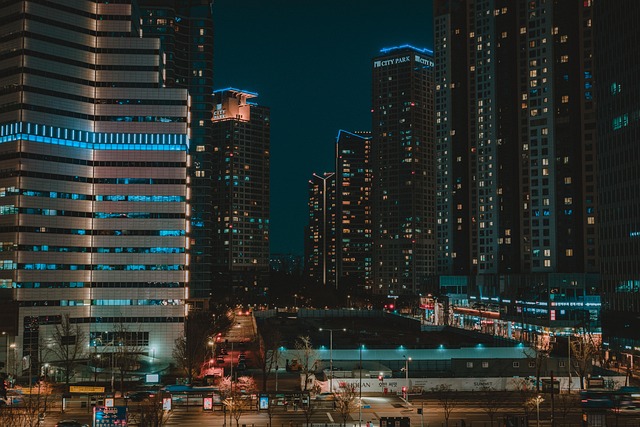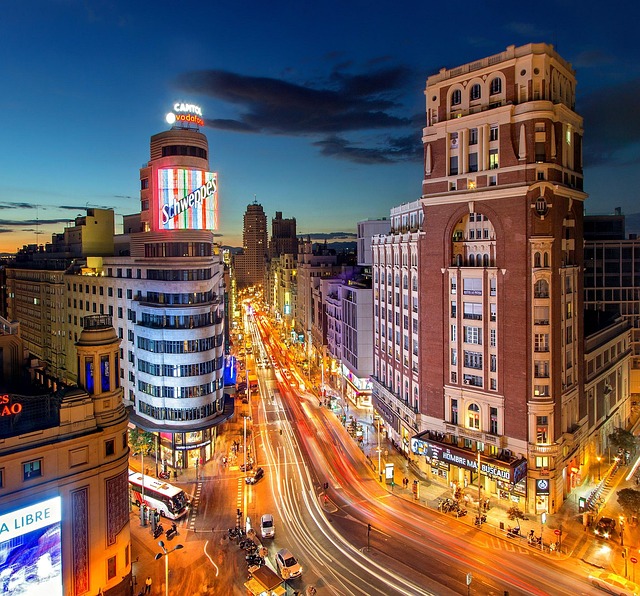Karachi, Pakistan's economic hub, faces complex waste management due to its vibrant, diverse ecosystem. NHS Karsaz stands out as a primary recycling center, efficiently processing plastic, paper, glass, and metal to reduce environmental impact and promote resource conservation. By collecting, sorting, and transforming recyclables, these centers act as eco-warriors, minimizing the city's carbon footprint and inspiring sustainable practices among residents and businesses. Despite challenges like inefficient collection systems, Karachi has made strides through innovative technologies and community involvement, aiming to revolutionize recycling efforts with advanced operations and awareness campaigns.
Karachi, Pakistan’s bustling metropolis, faces significant waste management challenges. Amidst this complex landscape, the National Health Services (NHS) Karsaz stands out as a beacon of sustainability, leading the charge in recycling efforts. This article delves into Karachi’s recycling ecosystem, exploring the vital role of NHS Karsaz, the operational dynamics of local recycling centers, and the city’s achievements—and lingering challenges—in this arena. We also look ahead to potential prospects for NHS Karsaz and Karachi’s ongoing commitment to a greener future.
- Understanding Karachi's Recycling Ecosystem
- The Role of NHS Karsaz in Waste Management
- How Recycling Centers Operate in Karachi
- Challenges and Achievements in Karachi's Recycling Sector
- Looking Ahead: Future Prospects for NHS Karsaz and Karachi's Recycling Effort
Understanding Karachi's Recycling Ecosystem

Karachi, as Pakistan’s economic hub, presents a unique challenge and opportunity when it comes to recycling. The city’s vibrant ecosystem is a testament to its resilience and adaptability, but it also generates significant waste. Understanding Karachi’s recycling landscape is crucial in appreciating the efforts of initiatives like NHS Karsaz, which aim to revolutionize waste management. The bustling metropolis is home to diverse communities, each contributing to the city’s complex web of recyclables, from plastic and paper to glass and metal. This rich tapestry of materials offers both a potential goldmine for recyclers and a daunting task in sorting and processing.
The Role of NHS Karsaz in Waste Management

NHS Karsaz plays a pivotal role in Karachi’s waste management landscape, acting as a cornerstone for sustainable practices in the city. As one of the primary recycling centers, it facilitates the segregation and processing of various types of waste, including plastic, paper, glass, and metal. This multifaceted operation not only reduces the environmental impact of discarded materials but also contributes to resource conservation.
The center’s efficient systems transform these recycled materials into reusable products, diverting them from landfills and minimizing Karachi’s carbon footprint. By fostering a culture of responsible waste management, NHS Karsaz inspires residents and businesses alike to adopt eco-friendly practices. Its efforts are instrumental in shaping a greener Karachi, where sustainable waste handling is not just an option but a collective responsibility.
How Recycling Centers Operate in Karachi

Recycling centers in Karachi, a bustling metropolis, play a pivotal role in managing and reducing waste, contributing to a greener environment. These facilities operate as intricate systems, where various types of recyclable materials are collected, sorted, processed, and prepared for further use or manufacturing. The process begins with the collection of recyclables from designated points across the city, ensuring an efficient and regular supply chain.
In Karachi’s recycling centers, manual labor and advanced machinery work in harmony. Skilled workers meticulously separate items by material type—plastic, paper, glass, and metal—ensuring proper categorization for subsequent processing. Modern equipment, such as shredders and sorter machines, aid in breaking down and sorting materials further, increasing efficiency. Once processed, the recycled products are stored or sent to manufacturers who upcycle them into new goods, thereby reducing the demand for virgin resources and minimizing environmental impact.
Challenges and Achievements in Karachi's Recycling Sector

Karachi, as Pakistan’s largest city, faces unique challenges in its recycling sector. The rapid urbanization and increasing waste generation have put immense pressure on existing recycling infrastructure. One of the primary hurdles is the lack of efficient collection systems, leading to improper waste management practices. Many neighborhoods struggle with accessible recycling points, encouraging informal recycling methods that can be unhygienic and environmentally detrimental.
Despite these challenges, Karachi has witnessed notable achievements in its recycling efforts. The city’s recycling centers have successfully diverted significant amounts of waste from landfills, contributing to a more sustainable future. Innovative initiatives, such as the implementation of automated sorting technologies, have improved recycling rates. Furthermore, the involvement of local communities and partnerships with NGOs has raised awareness about responsible waste management, fostering a culture of sustainability in Karachi.
Looking Ahead: Future Prospects for NHS Karsaz and Karachi's Recycling Effort

As Karachi continues to grow and evolve, so does its commitment to sustainability. NHS Karsaz stands at the forefront of this movement, setting a benchmark for eco-friendly initiatives in the region. Looking ahead, the recycling center’s potential to expand its operations is immense, especially with the city’s ever-increasing waste generation. By implementing advanced technologies and fostering community engagement, Karachi can significantly enhance its recycling efforts, reducing landfill waste and promoting a healthier environment.
Future prospects include expanding the range of recyclable materials accepted, introducing innovative sorting techniques, and creating awareness campaigns to educate residents on responsible waste management. With continued support from local authorities and businesses, NHS Karsaz has the opportunity to revolutionize Karachi’s recycling landscape, setting an example for other cities in Pakistan and beyond.
Karachi’s recycling ecosystem, with NHS Karsaz at its heart, has made significant strides in waste management. By understanding the current landscape, recognizing the role of recycling centers, and acknowledging the challenges and achievements, we can envision a brighter future. The prospects for NHS Karsaz and Karachi’s recycling effort are promising, with potential for expansion and improvement driven by innovative solutions and collective efforts. Together, we can create a more sustainable and cleaner Karachi.

Leave a Reply